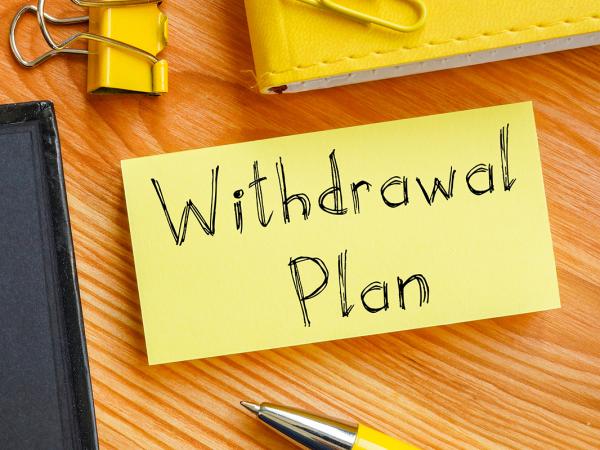Pensions and life assurance on death
This page discusses some tax considerations relating to pensions received by the deceased, as well as payments from life assurance policies.

Content on this page:
Introduction
When a person dies, they may be receiving a regular pension or may be receiving irregular flexible pension payments. Alternatively, they might not have started to draw a pension yet although they (and an employer) may have contributed to a pension scheme for them in the past. This page explains what may happen to those pension funds now. You can read more about pensions generally in our Pensions section.
This is a very complex area and the notes below refer only to registered UK pension schemes. It also assumes any lump sum death benefits are paid within two years of death. The rules have changed significantly over the years – this page describes the regime from April 2016.
Life assurance policies held by the deceased may also make a payment and we consider the taxation implications below.
State pension
If your spouse or civil partner dies, you do not receive their state pension. However, your own entitlement to the state pension may change. You can read about this on the page Death of a spouse or civil partner.
Deferred pre-6 April 2016 state pension
If the deceased had deferred their pre-6 April 2016 state pension and had not already made a claim to the state pension before they died, if there is no surviving spouse or civil partner, then no lump sum is payable. However, the personal representatives may be able to claim up to three months’ worth of pension, that would form part of the deceased’s estate.
On the other hand, if there is a surviving spouse or civil partner, they might be able to inherit some of the pension entitlement but not before they reach state pension age – and only if they do not remarry or enter a new civil partnership before they reach state retirement age. You can read more on GOV.UK.
Other types of pension
You need to advise the pension payer of the death. It then depends on the type of pension scheme as to whether any further funds might be paid from the pension scheme. The tax considerations around such pension funds are complex, but the outcome often depends on action taken (or not taken) by the deceased while they were alive. Each pension scheme may have its own rules and so the guidance below cannot cover every eventuality.
- Annuities
-
An annuity might cease at the date of death, but it is possible that there may be some entitlement for the bereaved spouse or civil partner to receive a survivor’s pension or for some value to be paid to other beneficiaries named by the deceased at the time the annuity was set up. Any guaranteed sums payable (for example, that the annuity would be payable for a period of five years) are potentially subject to inheritance tax, if the estate as a whole has sufficient value.
Annuity payments made as income to beneficiaries will be tax-free income if the deceased was aged under 75 when they died, but taxable at normal income tax rates if the deceased was aged 75 or over at the time of their death.
- Workplace pensions from defined benefit schemes
-
Often these schemes will allow a pension to be paid to a bereaved spouse or civil partner and/or a dependant’s pension (for example, to a child of the deceased). After a pension has started to be paid to the deceased from the scheme, any pension paid to a bereaved spouse or other dependant will be liable to income tax.
- Money purchase arrangements
-
The balance of funds held in the arrangement are available.
Any sum paid out may be liable to income tax at the recipient’s marginal tax rate(s), depending on the age at which the deceased died.
If they died under the age of 75, the following payments may be made tax-free:
- a lump sum to the beneficiary, or
- a lump sum paid into a beneficiary’s own pension fund (subject to the normal limits), or
- income might be drawn by the beneficiary from the fund tax-free.
If they died at age 75 or over, any payments to a beneficiary are liable to income tax at the beneficiary’s marginal rate of tax. But the fund may be kept within the fund’s tax-free pension fund environment before it is needed.
Not yet drawing a pension
The deceased may have been paying into a pension scheme at the time of death but had not yet started drawing a pension. In this situation what happens to the pension depends on both the type of scheme and whether the deceased was an active member of the scheme.
- Active member of a defined benefit scheme
-
Normally a lump sum death benefit will be paid along with a return of the member’s contributions. These should be tax-free if the deceased was under age 75.
In addition, a pension may become payable to the deceased’s spouse or civil partner or other dependant. Such pensions are taxable.
- Deferred member of a defined benefit scheme
-
The scheme may make a refund of contributions paid (tax-free) and/or pay a pension to the bereaved spouse or civil partner and/ or to dependants. Such pensions are taxable.
- Active member of a defined contribution scheme
-
The scheme may pay a lump sum death benefit and/or a pension to dependants. If the deceased was aged under 75, any lump sum and/or pension would be paid tax-free. If the deceased was age 75 or over, any death benefits or pension would be taxable on the beneficiary.
- Deferred member of a defined contribution scheme
-
The scheme may pay a lump sum death benefit and/or a pension to dependants. If the deceased was aged under 75, any lump sum and/or pension would be paid tax-free. If the deceased was age 75 or over, any death benefits or pension would be taxable on the beneficiary.
Pension lump sum death benefits
Pension scheme trustees often have wide discretion as to who they choose to pay benefits to, although normally they would act in accordance with the deceased’s wishes if they had been made aware of them. If death benefits are paid at the discretion of the pension scheme trustees, they normally fall outside the estate for inheritance tax purposes and so the executor or personal representative does not have to deal with them.
Lump sums from a life assurance policies
This is a complex area and it is important to find exactly what type of policy it is and whether it is written in trust. Both the income tax and the inheritance tax issues associated with such policies can be difficult to work out and we suggest referring to HMRC’s Inheritance tax manual and/or taking professional advice.
Lump sums from life insurance bonds
You can read about the income tax implications of this in our page Life insurance policies. As noted above, the inheritance tax issues associated with such policies can be difficult to work out and we suggest referring to HMRC’s Inheritance tax manual and/or taking professional advice.
Further help and information
The government’s MoneyHelper website offers free information and guidance on pensions.
The trustees or scheme administrator of the pension scheme of which the deceased was a member should be able to provide you with details of how their scheme operates.
If you are unsure of whether the deceased was a member of a pension scheme at date of death, their paperwork may help you identify any pension contributions and/or any pension receipts.
Throughout this site we only offer general guidance and you should always obtain specific advice before taking any action. You can find out where to get specialist help on our page Tax help with bereavement, trusts and estates.



